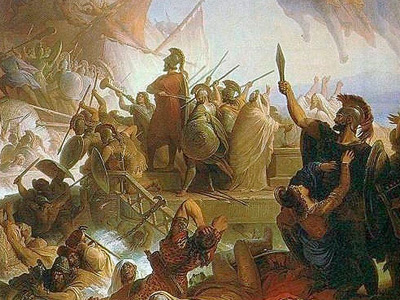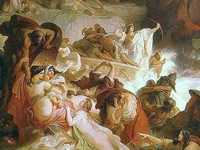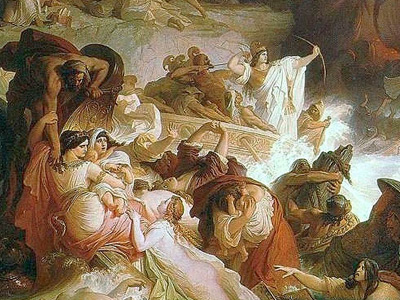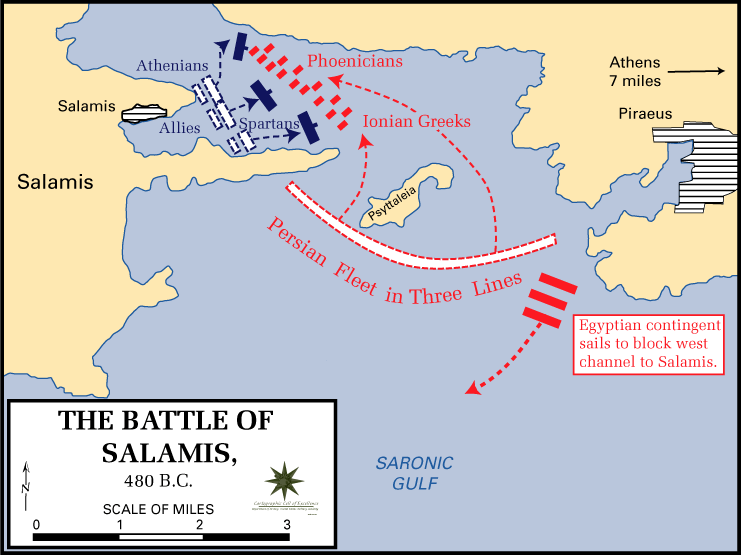Battle of Salamis (480 BC)

Aftermath
In the immediate aftermath of Salamis, Xerxes attempted to build a pontoon bridge or causeway across the straits, in order to use his army to attack the Athenians; however, with the Greek fleet now confidently patrolling the straits, this proved futile. Herodotus tells us that Xerxes held a council of war, at which the Persian general Mardonius tried to make light of the defeat:
Sire, be not grieved nor greatly distressed because of what has befallen us. It is not on things of wood that the issue hangs for us, but on men and horses...If then you so desire, let us straightway attack the Peloponnese, or if it pleases you to wait, that also we can do...It is best then that you should do as I have said, but if you have resolved to lead your army away, even then I have another plan. Do not, O king, make the Persians the laughing-stock of the Greeks, for if you have suffered harm, it is by no fault of the Persians. Nor can you say that we have anywhere done less than brave men should, and if Phoenicians and Egyptians and Cyprians and Cilicians have so done, it is not the Persians who have any part in this disaster. Therefore, since the Persians are in no way to blame, be guided by me; if you are resolved not to remain, march homewards with the greater part of your army. It is for me, however, to enslave and deliver Hellas to you with three hundred thousand of your host whom I will choose.
Fearing that the Greeks might attack the bridges across the Hellespont and trap his army in Europe, Xerxes resolved to do this, taking the greater part of the army with him. Mardonius handpicked the troops who were to remain with him in Greece, taking the elite infantry units and cavalry, to complete the conquest of Greece. All of the Persian forces abandoned Attica, however, with Mardonius over-wintering in Boeotia and Thessaly; the Athenians were thus able to return to their burnt city for the winter.
The following year, 479 BC, Mardonius recaptured Athens (the Allied army still preferring to guard the Isthmus). However, the Allies, under Spartan leadership, eventually agreed to try to force Mardonius to battle, and marched on Attica. Mardonius retreated to Boeotia to lure the Greeks into open terrain and the two sides eventually met near the city of Plataea (which had been razed the previous year). There, at the Battle of Plataea, the Greek army won a decisive victory, destroying much of the Persian army and ending the invasion of Greece; whilst at the near-simultaneous Battle of Mycale the Allied fleet destroyed much of the remaining Persian fleet.
HISTORY

RESOURCES
This article uses material from the Wikipedia article "Battle of Salamis", which is released under the Creative Commons Attribution-Share-Alike License 3.0.
© Stories Preschool. All Rights Reserved.










